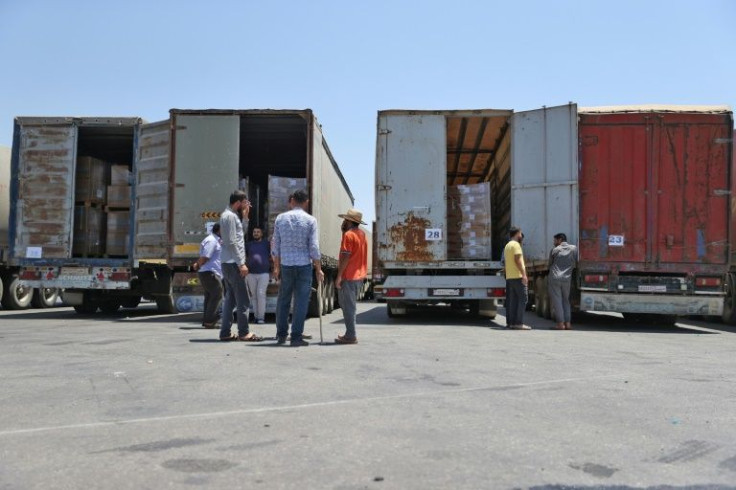UN Security Council Passes 6-month Extension Of Cross-border Syria Aid
The UN Security Council adopted a resolution Tuesday extending a system for cross-border aid to Syria by six months, the duration demanded by Russia while other members had sought a full year.
The measure received support from 12 of the Security Council's 15 members, including Russia, China, and the grouping's 10 non-permanent members.
Western nations had called for a year-long extension, arguing that six months was insufficient to properly plan the delivery of aid to war-ravaged Syria.
Britain, France and the United States abstained from the vote, marking their disagreement with the shorter duration.
"Russia forced everyone's hand: either the system would be ended, or it was extended for six months," an ambassador told AFP, requesting anonymity to discuss the extension agreement reached in principle on Monday between the council's 15 members.
"We could not let people die."
United Nations Secretary-General Antonio Guterres expressed similar concern, saying extending the aid -- particularly for the people of Idlib in Syria's rebel-held northwest -- "is a matter of life and death for many of them."
"We asked for a renewal of one year. The Security Council approved six months," he said. "But I strongly hope that after six months it will be renewed."
The aid delivery mechanism across Turkey's border into rebel-held Syria at the Bab al-Hawa crossing is the only way UN assistance can reach civilians without navigating areas controlled by Syrian government forces.
The system, in place since 2014 and which more two million people rely on for assistance, had expired on Sunday.
The agreement, introduced by Ireland and Norway, breaks an impasse that had threatened to derail the life-saving supplies.
It also provides for a renewal in January 2023 for another six months, subject to the adoption of a new resolution, diplomats said.

Both Ireland and Norway expressed relief Tuesday that aid would continue to flow.
But non-governmental groups offered withering critiques of Russia and slammed the United Nations process as unsustainable and inadequate.
"It's outrageous that Russia once again succeeded in blackmailing Council members, this time by slashing the renewal period to six months so that the authorization expires in the middle of winter," Human Rights Watch said in a statement.
British-founded charity Oxfam said the system of repeated renewals of short-term aid windows places unnecessary uncertainty on an already precarious situation for vulnerable Syrians.
The resolution "is deeply disappointing and could potentially leave more than four million people in northwest Syria without the assistance they depend upon to survive when the harsh winter months arrive," said Oxfam's Brenda Mofya.
In contrast, the World Health Organization hailed the UN for voting to avoid a near-total cut off of vital aid, saying they will continue to deliver "life-saving supplies" to the vulnerable population.
The renew of cross-border aid operations "is very good news for the nearly four and a-half million Syrians whose lives and health depend on this humanitarian access," WHO chief Tedros Adhanom Ghebreyesus told reporters in Geneva.
Russia, a Damascus ally, vetoed a Security Council resolution Friday that would have prolonged the mechanism by one year. Western powers then voted down Moscow's initial competing resolution that proposed extending approval by just six months.
The new Irish-Norwegian text provides for a renewal in January 2023 for another six months, subject to the adoption of a new resolution.
More than 4,600 aid trucks, carrying mostly food, have crossed Bab al-Hawa this year, helping some 2.4 million people, according to the UN's Office for the Coordination of Humanitarian Affairs.
© Copyright AFP 2024. All rights reserved.





















